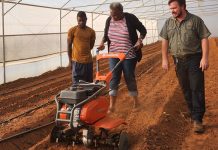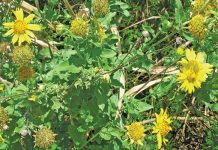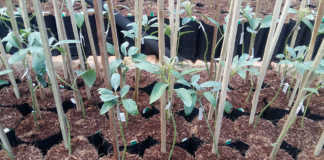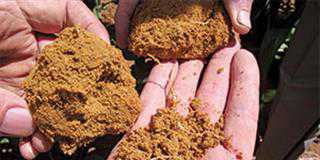Foundations for Farming believes that there are four principles of success: tasks should be accomplished on time; you should work to a high standard; there should be minimal wastage; and everything should be undertaken with joy. In previous weeks, we looked at the first two principles. This week we look at the third: avoiding waste.
The idea applies to virtually everything we work with:
Natural elements, including water, soil, nutrients and seed.
All of these are provided in abundance by nature and there’s plenty available, but only if farmers don’t waste them! Nature never wastes. Water, for example, is recycled again and again. And soil renews itself – plants die in it, making it fertile so that new plants can grow.
In the same way, you should conserve all these natural elements so that your crops and animals can thrive. Foundations for Farming’s methods helps you to do exactly this. There is no tilling, so the soil stays balanced and healthy. And you use mulch,
which softens the impact of raindrops, helps the ground absorb water and keeps the soil fertile. With ordinary farming, on the other hand, the soil is ploughed and left exposed, so topsoil and water are lost through run-off.
Energy and labour.
Because there’s no ploughing, Foundations for Farming’s methods save energy and time. This gives you more time to spend on weeding, mulching and other important tasks, so that your crops can be as healthy and vigorous as possible.
Opportunities
Never waste new opportunities either! For example, you might get a chance to grow and market a particular type of crop, or attend a useful course, or improve the feeding or breeding of your animals. Speak to customers who buy your produce as well as fellow farmers to learn more, then plan your farming accordingly.
In other words, don’t simply follow the same techniques again and again without thinking – you could be wasting opportunities to improve your farming. And improvement should be at the heart of your farming operation.
To find out more about Foundations for Farming, go to www.foundationsforfarming.org.













